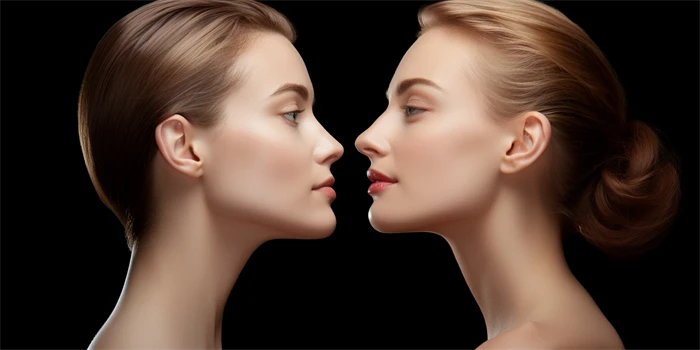Can I Eat Shrimp After a Nonsurgical Nose Job in Chaguanas?
A nonsurgical nose job, also known as a liquid rhinoplasty, is a popular cosmetic procedure that involves the use of dermal fillers to reshape the nose without the need for surgery. This procedure is gaining traction in Chaguanas and other parts of the world due to its non-invasive nature and quick recovery time. However, patients often have questions about their diet post-procedure, particularly regarding the consumption of seafood like shrimp. This article will delve into the various aspects of dietary considerations after a nonsurgical nose job, focusing on the safety and advisability of eating shrimp.

Understanding the Nonsurgical Nose Job Procedure
Before discussing dietary restrictions, it's essential to understand what a nonsurgical nose job entails. During this procedure, a board-certified plastic surgeon or a dermatologist injects dermal fillers, typically made from hyaluronic acid, into specific areas of the nose to alter its shape. The goal is to correct minor imperfections, such as bumps, asymmetry, or a drooping tip. The procedure is relatively quick, usually taking about 30 minutes, and patients can return to their normal activities almost immediately.
Recovery and Dietary Considerations
While the recovery from a nonsurgical nose job is swift, there are still some precautions to consider, especially regarding physical activities and diet. The primary concern post-procedure is to avoid any activity that might increase blood pressure, as this could potentially lead to complications such as bruising or swelling. Diet plays a crucial role in maintaining a stable blood pressure and ensuring optimal healing.
The Role of Shrimp in Post-Procedure Diet
Shrimp, being a type of seafood, is a common dietary item that many people enjoy. However, its consumption after a nonsurgical nose job requires careful consideration. Shrimp is known to be a high-protein food that is generally safe for most individuals. However, it is also a food that can potentially cause allergic reactions in some people. Allergic reactions can lead to symptoms such as itching, hives, and in severe cases, anaphylaxis, which can increase blood pressure and heart rate.
Potential Risks and Recommendations
Given the potential for allergic reactions, it is advisable for patients who have undergone a nonsurgical nose job to avoid consuming shrimp or any other seafood that might trigger an allergic response. This is particularly important in the first few days following the procedure, as the body is in a more vulnerable state and any allergic reaction could exacerbate post-procedure swelling or bruising. If a patient is unsure about their allergy status, it is recommended to consult with a healthcare provider before consuming shrimp or other seafood.
Long-Term Dietary Considerations
In the long term, maintaining a balanced diet is crucial for overall health and to support the body's natural healing processes. Patients should focus on consuming a variety of foods rich in vitamins and minerals, including fruits, vegetables, lean proteins, and whole grains. If shrimp is a part of a balanced diet and the patient does not have any allergies, it can be included after the initial recovery period, provided it is consumed in moderation and as part of a healthy diet.
FAQ
Q: How long should I avoid shrimp after a nonsurgical nose job?
A: It is recommended to avoid shrimp for at least the first few days post-procedure, or until the initial swelling and bruising have subsided. If you have a known shrimp allergy, it is best to avoid it for a longer period, or indefinitely.
Q: Can I eat other seafood after a nonsurgical nose job?
A: Similar to shrimp, other seafood should be avoided if you have any known allergies. If you do not have allergies, other seafood can be consumed in moderation after the initial recovery period.
Q: Are there any specific foods I should avoid after a nonsurgical nose job?
A: Generally, you should avoid foods that are known to increase blood pressure or cause allergic reactions. This includes spicy foods, alcohol, and certain seafood like shrimp if you have allergies.
Q: What should I eat to promote healing after a nonsurgical nose job?
A: A diet rich in vitamins and minerals, including fruits, vegetables, lean proteins, and whole grains, can help promote healing. Staying hydrated is also crucial.
In conclusion, while shrimp is a nutritious food, its consumption after a nonsurgical nose job in Chaguanas should be approached with caution, especially if you have any known allergies. Consulting with a healthcare provider can provide personalized advice to ensure a safe and smooth recovery.





